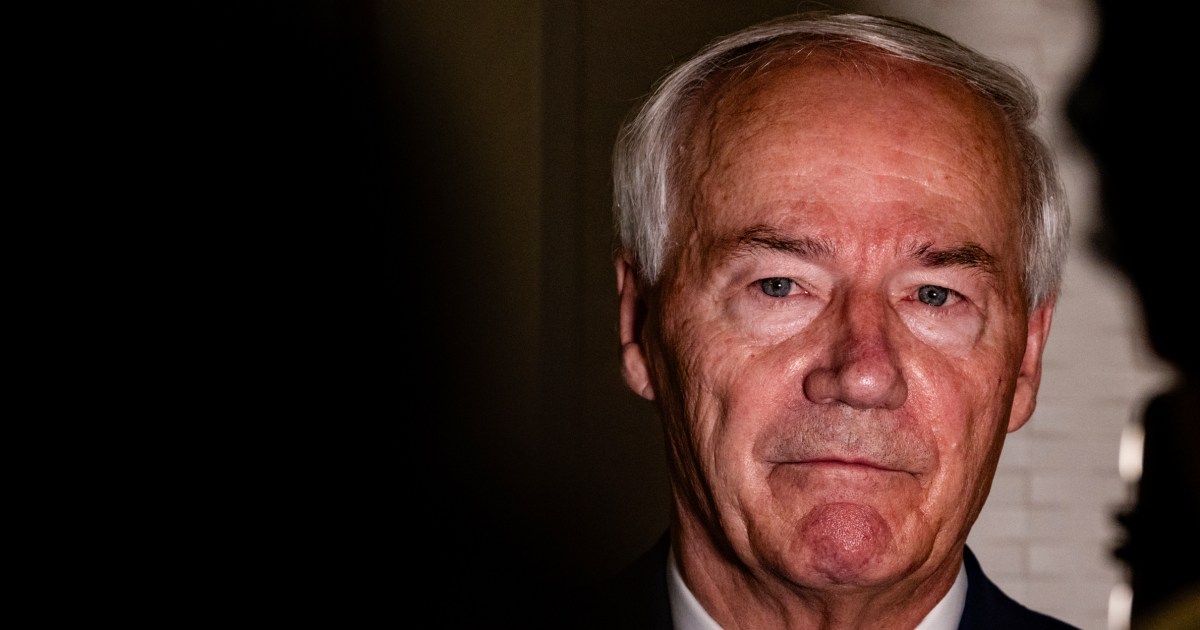Former Arkansas Gov. Asa Hutchinson announced Tuesday that he is suspending his campaign for the Republican presidential nomination, dropping out after failing to register in the Iowa caucuses.
Hutchinson notched 0.2% of the vote in Monday’s caucuses, finishing a distant sixth after an anti-Trump campaign that did not gain traction for the veteran Republican in the new GOP.
“My message of being a principled Republican with experience and telling the truth about the current front-runner did not sell in Iowa,” Hutchinson said in a statement. “I stand by the campaign I ran.”
Hutchinson spent much of his campaign on the ground in Iowa and New Hampshire, where he was a vocal critic of Donald Trump, even suggesting that the former president might be disqualified from running in 2024 under the 14th Amendment to the Constitution, which has a provision barring candidates who have engaged in insurrection.
“Whenever you’re looking at four indictments, and the fact that not everybody can recite what each of those indictments entail, they know this is not good for our country and that no one under that kind of pressure can lead our country, particularly with a mindset that he wants to get revenge as the next president,” Hutchinson said last year in an interview with NBC News. “And so if anyone should drop out, it should be Donald Trump.”
On the campaign trail, Hutchinson highlighted his two terms as Arkansas governor along with prior leading roles at the Drug Enforcement Administration and the Department of Homeland Security in the George W. Bush administration. Hutchinson also criticized the Biden administration’s economic and border policies while calling for the U.S. to become more energy independent.
Hutchinson reached the Republican National Committee’s polling threshold to qualify for the party’s first debate in Milwaukee in August, but he did not meet the higher polling requirements for subsequent debates.
Prior to the second debate, Hutchinson told NBC News that he’d reconsider his candidacy if his polling numbers didn’t improve by late fall.
“Certainly, if I can’t be at 4% in a national or early state poll by Thanksgiving, then I should re-evaluate the campaign,” he said in September.
